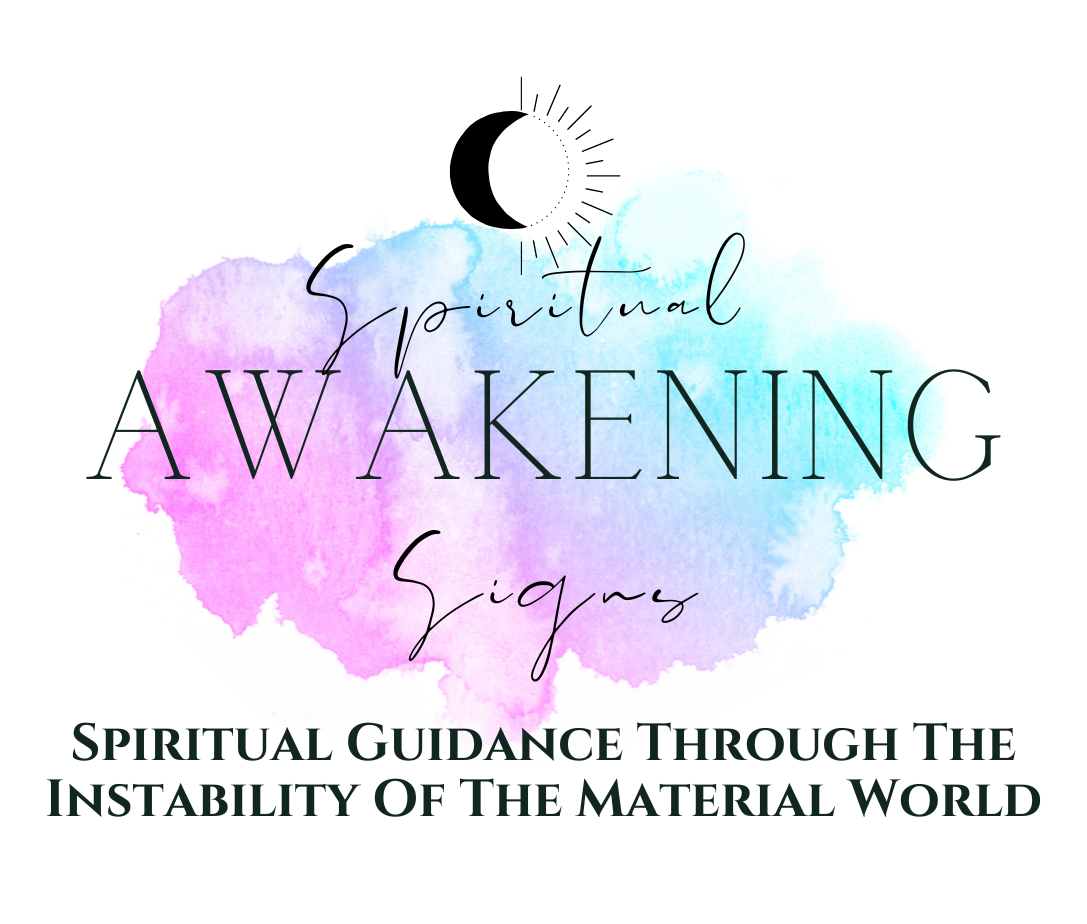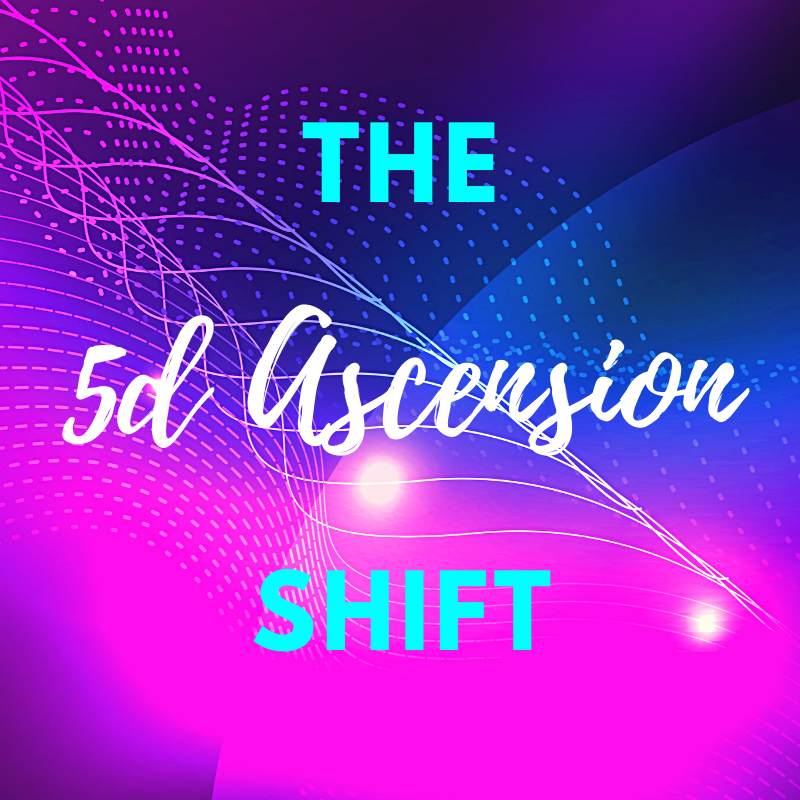Exploring Spiritual Narcissism: Recognizing the Distortion
If you’re here, you’re either directly experiencing interactions with someone who displays inflated spiritual ego, or are using self awareness to consider the presence of this within yourself (and if so – extra gold stars to you for joining this brave, truth seeking community where we choose to actively clear our baggage!).
Spiritual narcissism emerges when individuals use their spiritual practices to bolster their ego, subtly transforming a path meant for enlightenment into one of self-aggrandizement. This phenomenon distorts the true essence of spirituality, leading practitioners to believe that their spiritual accomplishments elevate them above others.
This misguided belief can create an illusion of spiritual superiority, where personal growth is confused with spiritual entitlement. At its core, spiritual narcissism is a trap that ensnares the ego, making the journey inward one of outward pretense and competition rather than genuine self-discovery and humility, and FYI, it’s a common milestone of awakening to be called to clear this from ourselves and I commend those who are brave enough to take that plunge!
Addressing spiritual narcissism requires us to recognize these tendencies and actively work against them. By cultivating a genuine understanding of spirituality that emphasizes humility and connection rather than dominance and isolation, individuals can ensure their spiritual practices promote true enlightenment and community building.
The Nature of Spiritual Narcissism
Defining Spiritual Narcissism
Spiritual narcissism is a unique form of self-inflation where an individual’s spiritual practices and beliefs become a platform for boosting their ego and sense of superiority. Unlike general narcissism, which often manifests through overt self-centeredness and a craving for admiration, spiritual narcissism is cloaked in the guise of spiritual depth and enlightenment. It stands apart from narcissistic personality disorder, which is a clinical condition characterized by persistent patterns of grandiosity, a constant need for admiration, and a lack of empathy, and despite how obvious that may seem, it can be really tough to identify it within ourselves since our ego pulls out all the stops to hide the trait and avoid our removal of it. Spiritual narcissism, on the other hand, specifically relates to the misuse of spiritual experiences to elevate one’s self-image.
Psychological Roots
The psychological roots of spiritual narcissism often begin innocently – often from an abusive or neglectful childhood, deep low self esteem, or simply as a person seeks personal growth through spiritual practices. However, when the ego co-opts these spiritual achievements, the intent shifts from self-improvement to self-enhancement. This shift often happens subtly, as the initial humble quest for enlightenment gradually morphs into a tool for asserting spiritual superiority, and no one will tell you that its an incredibly addictive energy, so it can be tough to really clear out for good.
The Fine Line Between Growth and Egotism
There is a thin line between genuinely deepening one’s spirituality and sliding into spiritual egotism. As individuals progress in their spiritual practices, the accolades and acknowledgments they receive can feed the ego, turning a path meant for self-transcendence into one of self-aggrandizement. Recognizing this transition is crucial, as it prevents the spiritual journey from devolving into a pursuit of spiritual accolades rather than true inner peace and enlightenment. Maintaining awareness of this delicate balance helps safeguard the spiritual path from becoming a platform for the ego.
Signs of Ego Dominance in Spiritual Practices
Identifying an Ego Trip in Spiritual Growth
It can be challenging to pinpoint when a pursuit of spiritual growth veers into an ego trip, but certain indicators signal this transition. Initially subtle, these signs become more apparent as spiritual endeavors are increasingly used to justify an individual’s sense of self-importance rather than their inner transformation.
Key Signs of Spiritual Egotism
The most telling signs of spiritual narcissism include a pronounced feeling of superiority over others who are seen as less enlightened or spiritual. This is often coupled with an inflexibility in beliefs, where one’s spiritual insights are considered the ultimate truth, leaving no room for alternative viewpoints or interpretations. Another significant indicator is dismissiveness towards non-spiritual people or those who follow different spiritual paths, reflecting a lack of empathy and understanding.
From Humility to Arrogance Using Labels To Uplift
The journey from humility to arrogance in spirituality can start with genuine spiritual insights. However, these insights may breed a sense of entitlement as the individual starts to believe that their advanced understanding places them above others. This perceived entitlement can alienate others and distort the true purpose of spiritual practices, which is to foster connection and unity rather than division. Recognizing and addressing these shifts early can prevent the deepening of these ego-driven tendencies, preserving the integrity of one’s spiritual path.
Using Labels To Uplift
Spiritual narcissism can show up as individuals believing they are saints, ascended masters or key spiritual or iconic figures from history. It can also show itself through identifying too tightly with common spiritual labels such as ‘light worker, twin flame, earth angel, indigo’ etc. If it makes an individual feel special and different from others, while there may be some truth to the resonance with the identity of these labels, it’s important to have self-awareness on high alert, and be vigilant to ensure that they don’t become used by the ego as a way to feel special and important by viewing others as ‘normies’ or ‘less than’ in some way.
The Materialistic and Fame Aspects of Spirituality
Critiquing the Commercialization of Spirituality
The commercialization of spirituality poses significant concerns, as it transforms profound spiritual practices into mere commodities or status symbols. This trend commodifies personal growth, often packaging and selling spiritual experiences in ways that can dilute their intrinsic value. When spiritual tools, rituals, or symbols are marketed primarily for profit, void of true spiritual connection or a desire to help, heal or serve in some way, their core essence – meant to inspire inner transformation and connection – risks being overshadowed by materialistic values.
Pop Culture and Social Media Influences
In popular culture and social media, spirituality often becomes a display piece, flaunted for fame and material gain. Influencers might use spiritual aesthetics or language to build a brand or attract followers, sometimes without any genuine connection to the practices they promote. This portrayal can mislead audiences about the depth and discipline required in true spiritual practices, instead offering an alluring but superficial glimpse into a complex personal journey.
Impact on Collective Spiritual Consciousness
This trend towards materialism in spirituality can erode the collective spiritual consciousness, shifting focus from unity and self-discovery to competition and self-promotion. Just as the authenticity of electric vehicles is crucial in their acceptance and integration into markets, authenticity in spiritual practice is essential for its effectiveness and integrity. When spirituality is used as a tool for social leverage rather than for personal and communal enlightenment, the entire foundation of spiritual connectedness can become fragmented, leading to a collective loss of true spiritual values and goals.
The Risks of Over-Spiritualizing
Neglecting Daily Life
An excessive focus on spirituality can sometimes lead to the neglect of everyday responsibilities and relationships. When spiritual pursuits consume a disproportionate amount of time and energy, important aspects of daily life, such as career obligations, family interactions, and social commitments, may be sidelined. This imbalance can cause significant stress and strain in personal and professional relationships, as individuals may become less present and engaged in their non-spiritual roles.
In extreme cases, this can extend to not taking care of personal hygiene, not eating (or eating poorly), over-indulgence in harmful things or practices or even – in its greatest emergency – believing that ‘Spirit’ or the ‘Universe’ will take responsibility for you, intervene if you put yourself in danger, fix any 3D problems that show up, stop bad things from happening or ensure you will not be harmed despite the choices that you make.
Please note that a higher power will not take control of your life. It will guide you and provide breadcrumbs of messages to lead you to your highest joy, but will always respect the fact that you are responsible for your own life and taking care of your physical 3D vehicle. If an individual will neglect that, often they will allow us to be humbled through the experience to assist in gaining self accountability, responsibility and control over our own life and energy.
Understanding Spiritual Bypassing
The concept of “spiritual bypassing” is a critical risk in excessive spiritual practice. This term refers to the use of spiritual beliefs and practices to avoid confronting emotional wounds, unresolved conflicts, or developmental needs. Instead of dealing with personal issues, individuals may hide behind spirituality, mistakenly believing that spiritual practices alone can resolve all life challenges without direct, often uncomfortable, emotional work. Just as we mentioned before, a higher power won’t do it all for us – we must work WITH the Universe to co-create the optimal result.
Isolation from Society
There are numerous instances where individuals have isolated themselves from society due to their spiritual beliefs. By retreating into a strictly spiritual realm, they may lose touch with community and common social interactions, which are essential for balanced human existence. This isolation can exacerbate feelings of loneliness and alienation, as the individual may struggle to relate to others who do not share or understand their beliefs or intense spiritual focus.
Each of these risks underscores the importance of maintaining a healthy balance between spiritual development and everyday life. Integrating spiritual practices thoughtfully and responsibly ensures that they ENRICH rather than DETRACT from a full and connected life.
Maintaining Humility and Connection
Staying Grounded While Growing Spiritually
Maintaining a grounded presence in the everyday world while engaging in spiritual growth is essential for a well-rounded life. Practical tips for staying connected include setting aside specific times for spiritual practices without neglecting daily responsibilities. Incorporating mindful moments throughout the day, such as brief meditations or reflective journaling, can help balance spiritual development with everyday demands. You can also check out our signature course, ‘Grounded Awakenings’ specifically created for those going through the awakening process to reduce your awakening symptoms and ground your energies in just 7 days.
The Role of Community in Spiritual Balance
Community and relationships play a crucial role in fostering a balanced spiritual life. Engaging with a supportive spiritual community can provide both inspiration and a check against the excesses of spiritual narcissism. These relationships encourage humility and offer diverse perspectives that can enrich one’s understanding and practice of spirituality.
While it is entirely natural for individuals going through the awakening process to want to hide away and hermit for a while, being in the presence of others who are not going through the awakening process and who are therefore more anchored to the 3D world, can be very beneficial in grounding your energy effectively.
Integrating Spirituality with Daily Life
Strategically integrating spirituality into daily life helps prevent losing touch with reality. This can be achieved by applying spiritual principles, such as compassion and mindfulness, to interactions at work, with family, and in social settings. Instead of segregating spiritual practices from daily activities, weave them into the fabric of everyday experiences to enhance both personal growth and practical living.
These strategies not only promote a more balanced and fulfilling life but also ensure that spiritual pursuits are connected with real-world experiences and relationships, maintaining both humility and a grounded perspective.
Learning from Past Mistakes: Case Studies
Navigating Spiritual Narcissism: Individual and Community Experiences
Throughout the spiritual community, there are numerous accounts of individuals and groups who have faced and overcome the pitfalls of spiritual narcissism. For instance, a meditation group in California once realized that their leader was using his position to assert superiority rather than to guide. Through collective reflection and dialogue, the group members addressed the issue, leading to a more inclusive and humble practice environment that refocused on the core principles of meditation.
Lessons on Authenticity and Humility
These real-life stories shed light on the essential lessons about maintaining authenticity and humility in spiritual practices. The key takeaway is the importance of continuous self-awareness and community feedback in preventing spiritual narcissism. By prioritizing transparency and accountability within spiritual groups, individuals can safeguard their practices from becoming ego-driven.
Moreover, these case studies highlight the necessity of embedding checks and balances within spiritual teachings and leadership roles. Ensuring that no single individual’s perspective dominates can help maintain a balance between guidance and personal interpretation, fostering an environment where all members feel valued and heard.
This example serves as a powerful reminder of the value of humility and the dangers of allowing spiritual paths to be co-opted by personal ego. It encourages a collective commitment to authenticity and mutual respect in spiritual journeys.
Tools for Genuine Spiritual Growth
Cultivating Self-Awareness and Self-Critique
Genuine spiritual growth is deeply rooted in self-awareness and the ability to self-critique. Techniques such as meditation, journaling, mindfulness and seeking community feedback are invaluable in this journey. Meditation allows individuals to observe their thoughts and emotions non-judgmentally, fostering a profound inner understanding. Mindfulness promotes greater self awareness. Journaling serves as a reflective practice, helping to articulate and explore feelings and responses that arise during meditation or daily activities. Community feedback, especially from those within spiritual circles, provides external perspectives that can challenge personal biases and therefore promote growth.
The Role of Mentors and Spiritual Guides
Mentors and spiritual guides play a crucial role in providing reality checks and balanced perspectives, especially when personal judgments might be clouded by ego. These individuals help navigate the complex paths of spirituality with wisdom and experience, offering guidance that ensures practices remain grounded and authentic. Their insights help temper spiritual enthusiasm with practicality, preventing the drift into spiritual narcissism.
Creating Personal Spirituality
Developing a personal spirituality that emphasizes humility, openness, and inclusivity is essential. This approach encourages embracing diverse spiritual experiences and views, fostering a community where all voices are heard and valued. Such an environment not only enriches individual spiritual journeys but also builds a collective resilience against the isolation and divisiveness that can stem from narcissistic spiritual practices.
By integrating these tools into daily life, spirituality becomes a true conduit for personal transformation and a source of deep, meaningful interactions with the world.
Conclusion: Embracing Authentic Spirituality
Recognizing and addressing spiritual narcissism is crucial for anyone on a path of spiritual growth. This awareness ensures that our spiritual practices serve as genuine tools for self-improvement and connection, rather than becoming a means to elevate the ego. While challenging, it’s essential to remain vigilant and introspective, continuously examining our motivations and behaviors in the spiritual realm.
The journey of spiritual growth is continuous, one that should honor and integrate all aspects of life. This approach ensures that spirituality enhances our lives and relationships without overshadowing or disconnecting us from our earthly responsibilities and joys. It’s about finding a balance that enriches our entire being – body, mind, and spirit.
We encourage you to pursue a balanced and truly enriching spiritual path. If you’re seeking guidance on this journey, consider booking a 1:1 healing session (with me, Kelly – an intuitive energy healer and spiritual awakening expert). These personalized sessions are designed to help you navigate your spiritual path with authenticity and integrity, ensuring you grow in a way that is both profound yet grounded.
Reach out today and take a significant step towards deepening your spiritual journey in a meaningful and balanced way.
Frequently Asked Questions About Spiritual Narcissism
What is spiritual narcissism?
Spiritual narcissism occurs when an individual uses their spiritual practices or insights to inflate their ego and sense of superiority, rather than to achieve genuine spiritual growth. It can lead to a sense of entitlement and a superiority complex over others who may not share or be on the same spiritual path.
How can I recognize if I am experiencing spiritual narcissism?
Key signs include feeling superior to others based on your spiritual practices, being inflexible in your beliefs, and dismissing or undervaluing the perspectives and experiences of others who are not on the same spiritual journey. For a deeper understanding, explore the 12 Signs You’re Going Through a Spiritual Awakening.
What are the dangers of commercializing spirituality?
Commercializing spirituality can reduce profound, transformative practices to mere commodities or status symbols, losing their true essence. This trend risks undermining the genuine connection and introspection that spirituality promotes. Learn more about the essence of spiritual practices in Unveiling the Essence of Spiritual Awakening.
How can I maintain humility in my spiritual practice?
To maintain humility, engage in regular self-reflection and community feedback, practice mindfulness and empathy, and prioritize the well-being of others alongside your own spiritual growth. For more detailed strategies, read about Steps to Break Free from Blocks & Regenerate Your Spirit.
What should I do if I feel isolated due to my spiritual beliefs?
If your spiritual beliefs are causing isolation, consider seeking a more inclusive community, engaging in open dialogues about different spiritual perspectives, and integrating more communal activities into your practice. For guidance on navigating these challenges, check out the article on Life After a Spiritual Awakening.











